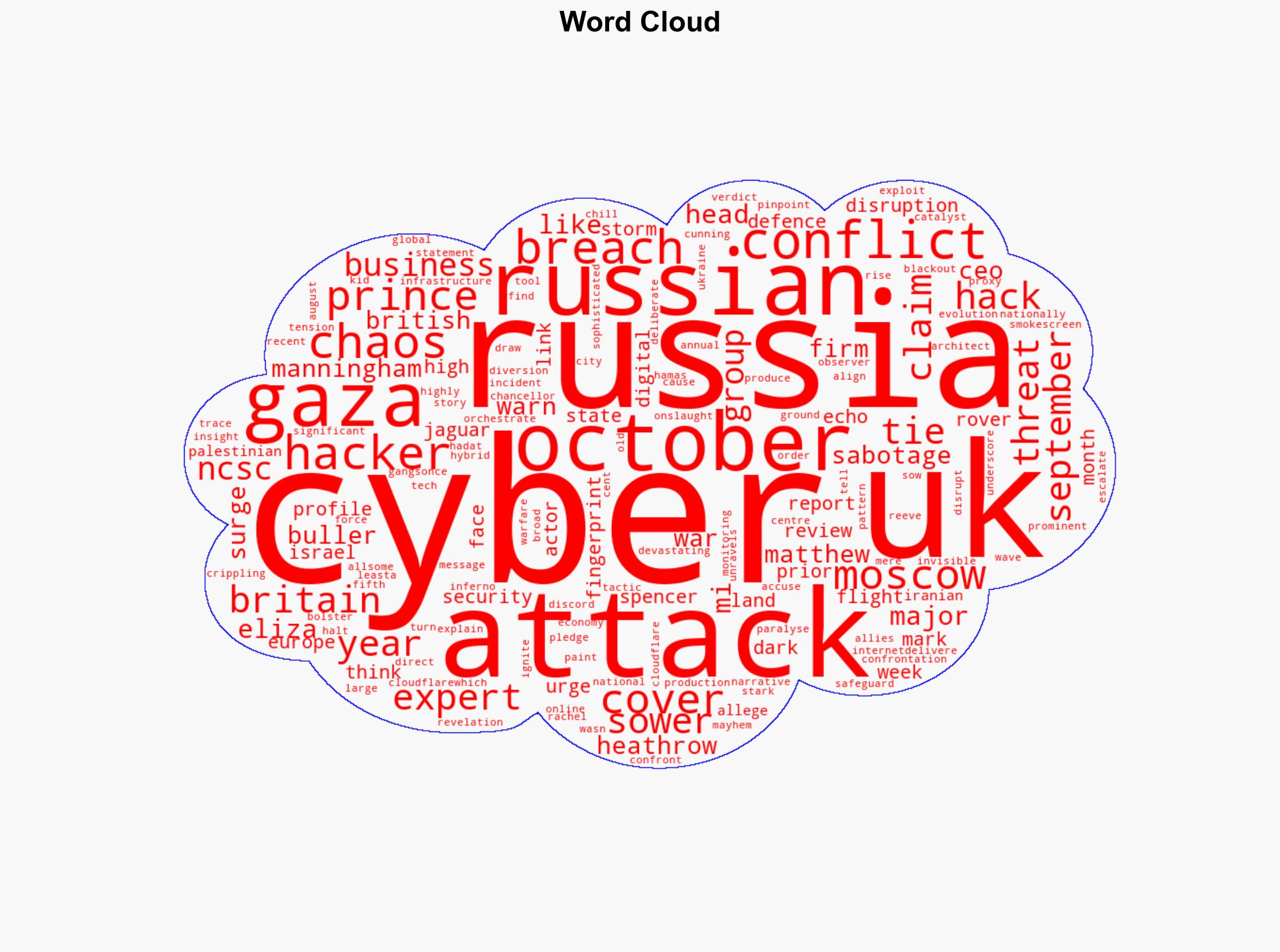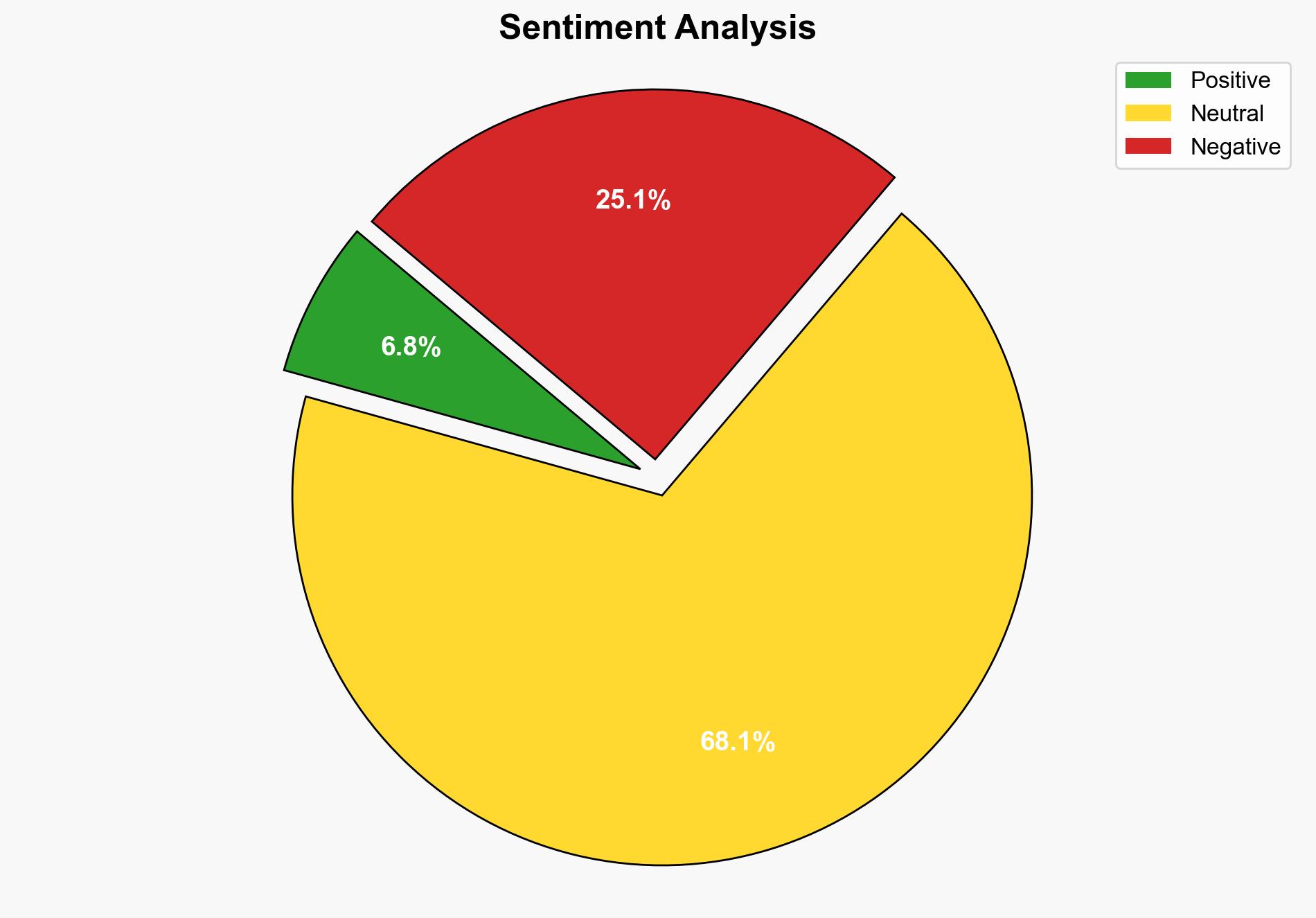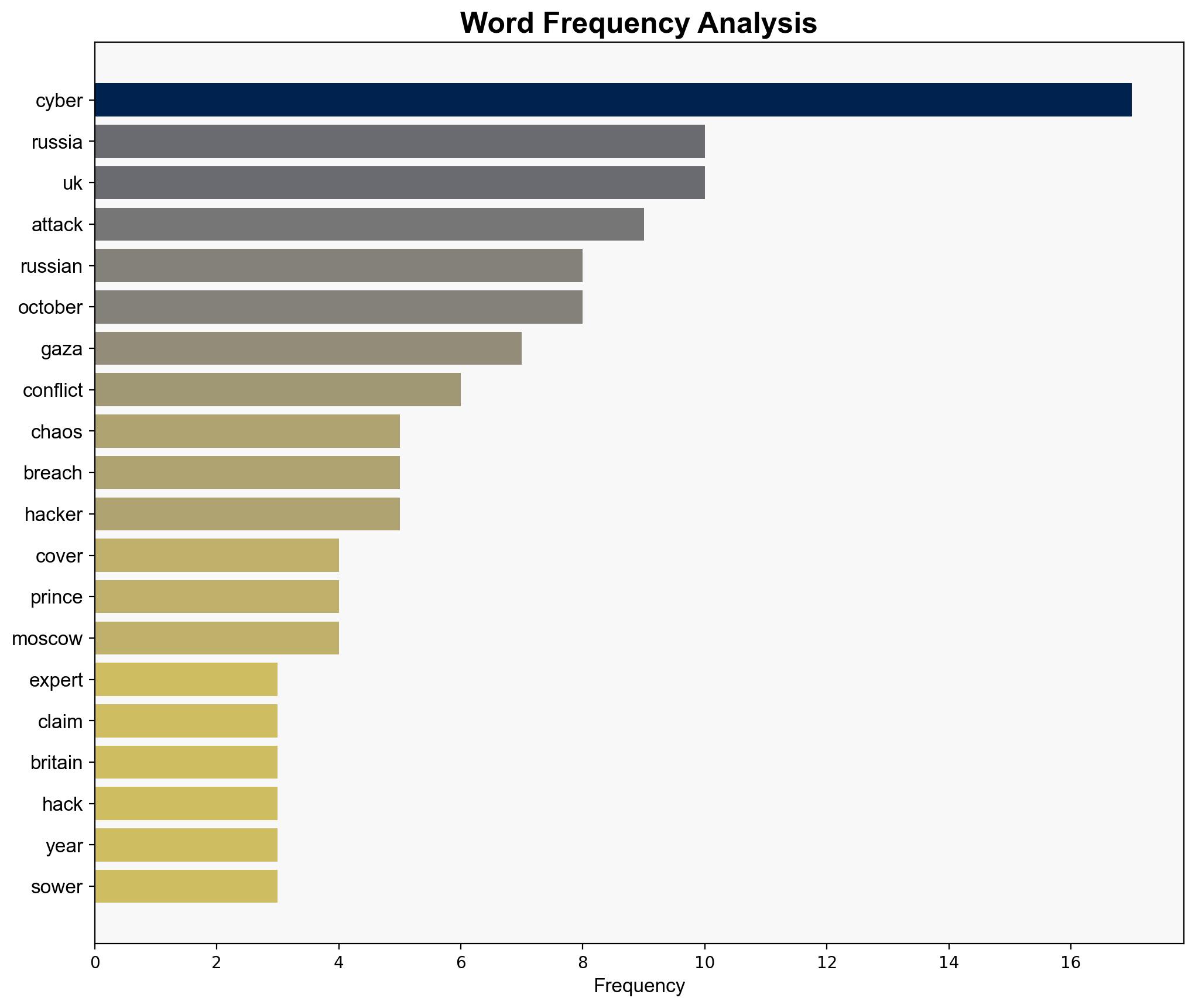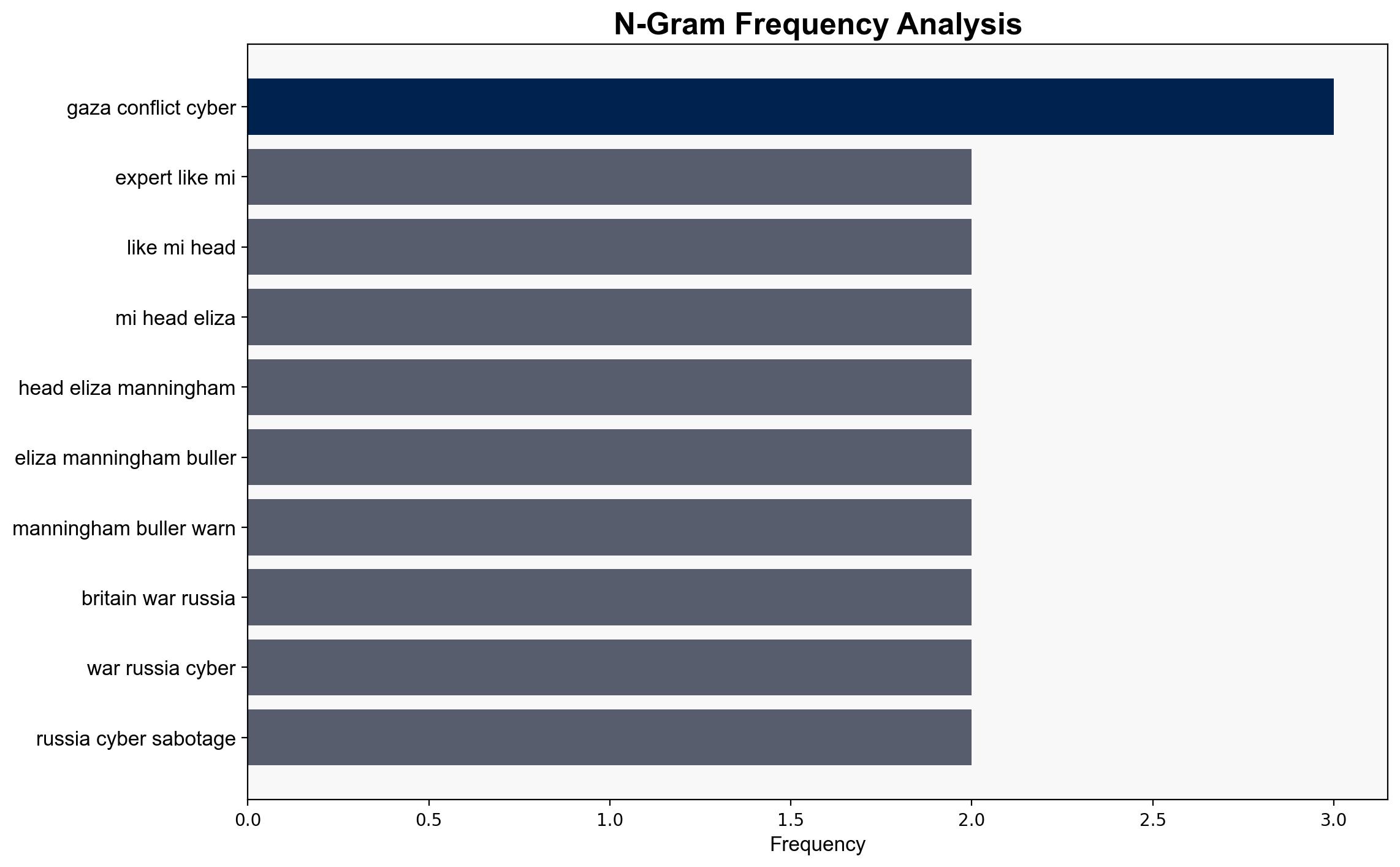Tech Expert Claims Russia Behind Major UK Cyber Attack Using Gaza Conflict as ‘Cover’ – International Business Times
Published on: 2025-10-30
Intelligence Report: Tech Expert Claims Russia Behind Major UK Cyber Attack Using Gaza Conflict as ‘Cover’ – International Business Times
1. BLUF (Bottom Line Up Front)
The most supported hypothesis is that Russia orchestrated a series of cyberattacks on the UK, using the Gaza conflict as a diversion. This is based on the alignment of attack patterns with known Russian cyber tactics and the strategic use of geopolitical distractions. Confidence level is moderate due to the complexity of attribution in cyber operations. Recommended action includes enhancing cybersecurity defenses and increasing intelligence sharing with allies.
2. Competing Hypotheses
1. **Hypothesis A**: Russia is behind the UK cyberattacks, using the Gaza conflict as a cover to distract from their activities. This is supported by the timing of the attacks, the sophistication of the methods used, and historical patterns of Russian cyber operations.
2. **Hypothesis B**: The cyberattacks are conducted by non-state actors or other state actors, such as Iran, exploiting the geopolitical chaos for their own strategic gains. This hypothesis considers the possibility of false flag operations or independent hacker groups leveraging the situation.
Using the Analysis of Competing Hypotheses (ACH) 2.0, Hypothesis A is better supported due to the coherence of the attack patterns with known Russian strategies and the strategic advantage gained by Russia in destabilizing UK infrastructure.
3. Key Assumptions and Red Flags
– **Assumptions**: It is assumed that the cyberattack patterns are consistent with Russian tactics and that the Gaza conflict provides sufficient cover for such operations.
– **Red Flags**: The possibility of misattribution due to sophisticated false flag operations. The lack of direct evidence linking Russia to the attacks is a significant gap.
– **Blind Spots**: Potential underestimation of other state actors’ capabilities and motivations.
4. Implications and Strategic Risks
The cyberattacks pose significant risks to the UK’s economic stability and national security. The disruption of critical infrastructure could lead to cascading effects on supply chains and public trust. Geopolitically, this may escalate tensions between the UK and Russia, potentially drawing in NATO allies. The psychological impact includes heightened public fear and potential overreaction by policymakers.
5. Recommendations and Outlook
- Enhance cybersecurity measures across critical infrastructure sectors, focusing on threat detection and response capabilities.
- Increase intelligence sharing and collaborative defense efforts with international allies to counteract cyber threats.
- Scenario Projections:
- Best Case: Strengthened defenses deter future attacks, and diplomatic efforts reduce tensions.
- Worst Case: Escalation of cyber warfare leading to broader geopolitical conflict.
- Most Likely: Continued cyber skirmishes with intermittent disruptions, requiring ongoing vigilance.
6. Key Individuals and Entities
– Matthew Prince, CEO of Cloudflare
– Eliza Manningham-Buller
– Rachel Reeve
7. Thematic Tags
national security threats, cybersecurity, counter-terrorism, regional focus




